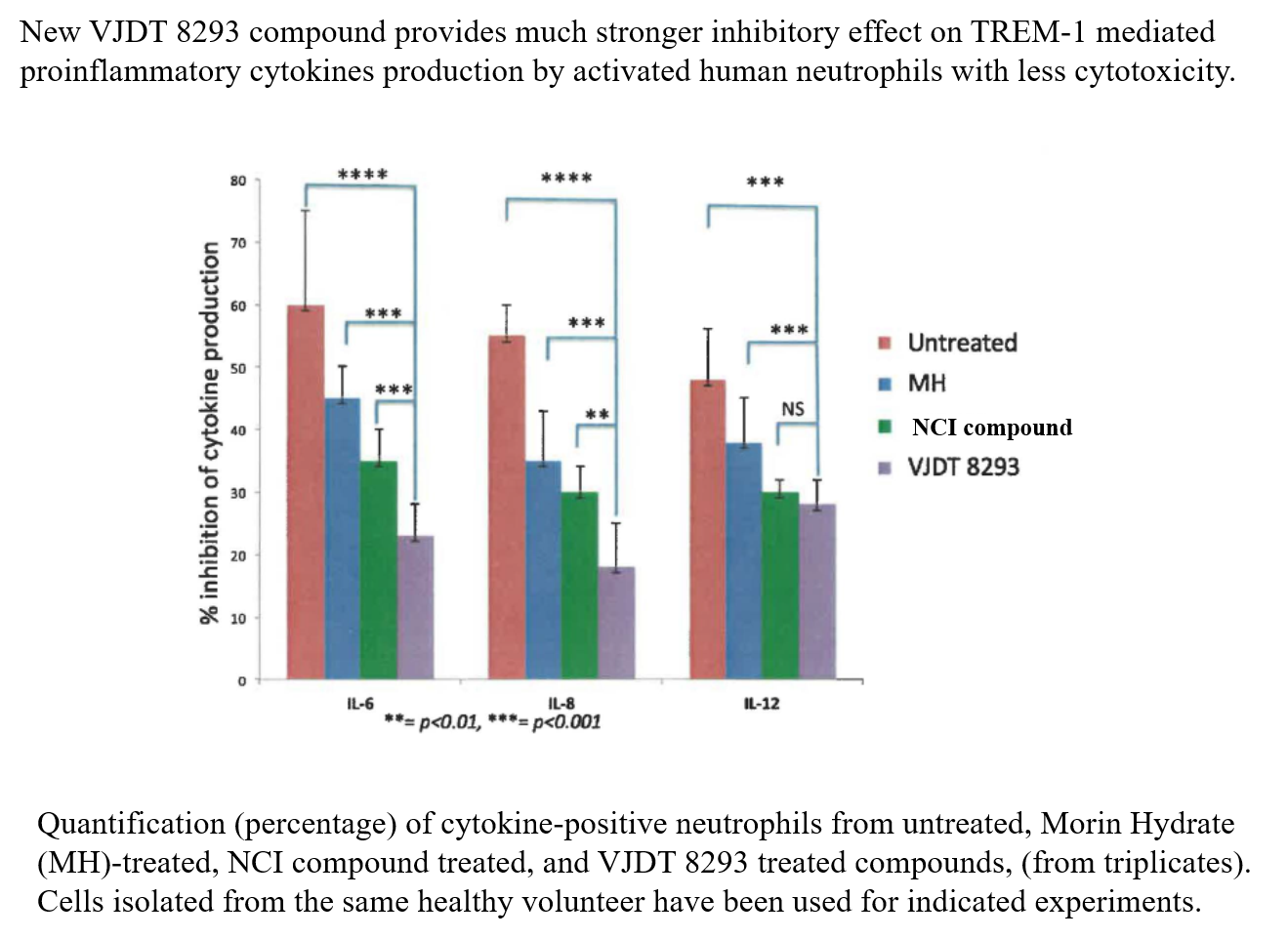Description:

The current state of the art
Trigging receptor expressed on myeloid cell 1 (TREM-1) plays a critical role in the pathogenesis of acute and chronic cardiovascular conditions, and is a crucial mediator of septic shock, especially, in cytokine release syndrome. Inhibiting TREM-1 is a promising therapeutic candidate for TREM-related diseases such as inflammatory disease, cardiovascular disease, and cancer.
Problems with the current art
Currently, TREM-1 inhibitors include peptides, TREM-1 Fc fusion protein, small molecules, and monoclonal antibodies. However, available TREM-1 inhibitors still are not effective and are limited to preclinical research. For example, peptide inhibitors degrade quickly and have a reduced lifespan in the body. Therefore the development of TREM-1 specific small molecule inhibitors is an attractive strategy to diminish acute and chronic inflammation.
Advantages of our invention
Scientists at AU developed a novel TREM-1 inhibitor (VJD8293) by screening the NCI diversity database and using different docking algorithms. The binding capacity was tested in in vitro assay. TREM-1 blocking activity and cytotoxicity were tested in the TREM-1 receptor cell line and human neutrophils. Compared to the original NCI compound and morin hydrate, a TREM-1 inhibitor that targeting both receptors TREM-1 and TLR-4, VJD8293 has a greater effect in inhibiting the inflammatory response. Therefore VJD8293 can be a promising candidate for a single therapeutic agent or combination drug candidate for TREM-1 related diseases.
AURI-2020-050
Lead Inventor: Anatolij Horuzsko https://www.augusta.edu/cancer/research/labs/anatolij-horuzsko.php
IP status: provisional application 63/080,708 (09/19/2020)
Reference: https://pubmed.ncbi.nlm.nih.gov/30137027/